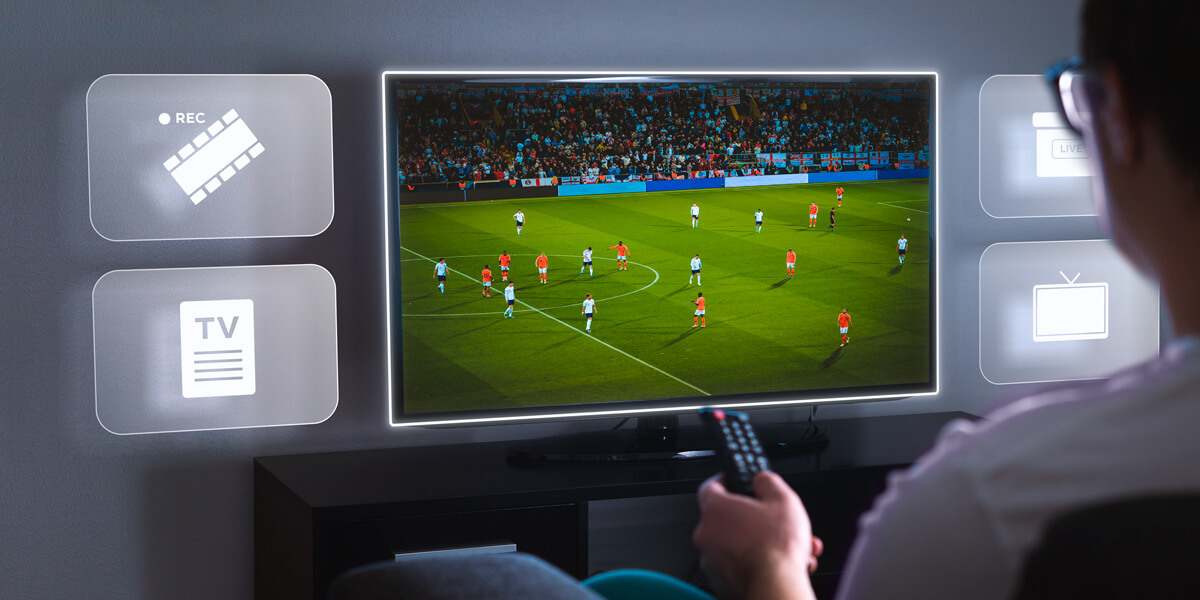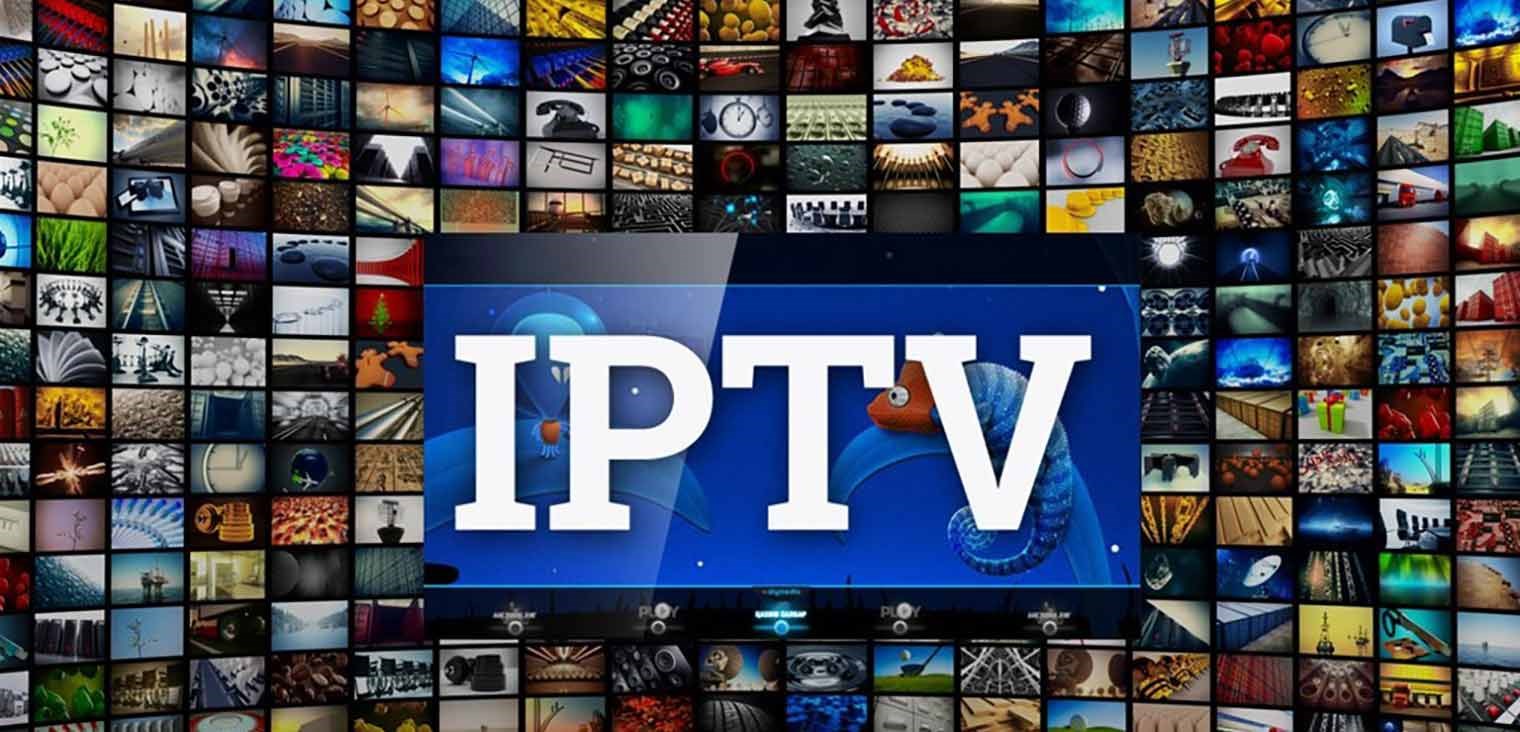In the age of digital entertainment, traditional TV services are quickly becoming a thing of the past. Streaming platforms, powered by technologies like IPTV (Internet Protocol Television), have taken over as the preferred method of television viewing. Whether you are a home user looking to replace your cable TV or a business wanting to provide high-quality digital content, IPTV offers a wealth of benefits. However, to truly enjoy IPTV’s full potential, you must ensure that your streaming quality is top-notch.
In this article, we will delve into the factors that affect IPTV streaming quality and share tips on how to achieve a smooth, uninterrupted viewing experience. Additionally, we will discuss how to select the best IPTV service provider and get the best IPTV subscription for your needs. By the end of this article, you’ll have the knowledge needed to enjoy high-definition, lag-free IPTV streaming.
What is IPTV?
Before we dive into the technical details, let’s quickly revisit what IPTV is. IPTV stands for Internet Protocol Television. Unlike traditional cable or satellite TV, IPTV delivers television content through an internet connection rather than via radio waves or satellite signals. IPTV services enable viewers to watch live television, on-demand content, and even record programs for later viewing.
One of the standout features of IPTV is its flexibility. With IPTV, you can stream content on a variety of devices—such as smart TVs, computers, smartphones, and tablets. The flexibility of IPTV allows you to enjoy TV content at home or on the go, providing a more convenient and customized experience compared to traditional TV options.
Factors Affecting IPTV Streaming Quality
To get the best IPTV subscription and ensure a high-quality viewing experience, it is essential to understand the various factors that influence IPTV streaming quality. Several elements can impact streaming, including internet speed, device compatibility, and IPTV service provider performance. Let’s explore each of these factors in greater detail:
1. Internet Speed and Bandwidth
One of the most important factors that affect IPTV streaming quality is your internet speed and bandwidth. Since IPTV is delivered through an internet connection, a fast and stable connection is required for a smooth experience. The minimum recommended internet speed for streaming IPTV in standard definition (SD) is around 3 Mbps, while high-definition (HD) streaming requires at least 5–8 Mbps. For ultra-high-definition (4K) content, your internet speed should be at least 25 Mbps or higher.
If your internet speed is too slow or unstable, you’ll experience buffering, lag, and poor-quality video. Buffering occurs when the video data can’t be delivered to your device quickly enough, resulting in interruptions in the viewing experience. To avoid this, make sure you have a reliable internet connection with the required speed. If your connection is insufficient, consider upgrading to a higher-speed plan from your internet service provider.
2. Device Compatibility
The type of device you use to watch IPTV can also have a significant impact on streaming quality. Different devices have varying levels of processing power, resolution capabilities, and compatibility with IPTV services. For instance, older TVs, streaming boxes, or smartphones may not support the latest resolution standards, such as 4K or HDR.
To ensure the best viewing experience, make sure you are using a device that supports high-definition content. If you want to enjoy 4K content, your TV or monitor must support 4K resolution, and the streaming device (such as an IPTV box or a smart TV) should be capable of processing 4K streams. Additionally, check that your device is compatible with the IPTV service provider you choose. Many IPTV services offer apps that can be installed on specific devices, so make sure the provider’s app works well with your chosen platform.
3. IPTV Service Provider and Subscription Quality
The IPTV service provider you choose plays a critical role in ensuring a smooth streaming experience. A reliable IPTV provider will offer a stable and consistent stream of content with minimal interruptions. Providers that experience frequent outages, buffering issues, or poor-quality streams should be avoided.
When choosing an IPTV provider, look for features like high-definition streaming, a wide range of channel offerings, and excellent customer service. The best IPTV service provider will offer a range of subscription plans tailored to your needs, whether you want a few basic channels or a premium selection of international programming. Ensure that the provider’s servers are capable of handling high-demand content and that they offer sufficient bandwidth for smooth delivery.
Additionally, the best IPTV subscription options provide customers with access to a comprehensive library of on-demand content, live TV channels, and additional features like cloud DVR and catch-up TV. A reliable IPTV service provider should also offer 24/7 customer support to assist with any technical issues you may encounter.
4. Streaming Resolution and Picture Quality
IPTV services offer various levels of streaming quality, from SD to HD and even 4K. The resolution of the content you watch depends on both your internet speed and the IPTV service provider you choose. While SD content requires less bandwidth, HD and 4K content require significantly higher speeds to stream smoothly.
If you have a fast internet connection but your IPTV service provider doesn’t offer HD or 4K streams, you won’t be able to take full advantage of your internet speed. When selecting a provider, look for one that offers HD or 4K streaming options for a superior viewing experience. If you’re paying for a best IPTV subscription, ensure that the subscription tier you choose includes access to HD or 4K content.
5. Latency and Server Performance
Latency is the delay between requesting content and the content being delivered to your device. High latency can lead to delays in starting the stream or cause buffering while the video plays. If you’re experiencing high latency or frequent buffering, it may be due to an issue with the server or the distance between your location and the IPTV provider’s server.
Choosing an IPTV service provider with local servers or a content delivery network (CDN) close to your geographical location can reduce latency and improve streaming performance. Opt for providers with optimized servers and strong infrastructure to minimize delays and ensure a smoother viewing experience.
6. Router and Network Configuration
Your home network setup can also affect IPTV streaming quality. The router you use plays a vital role in managing traffic between your internet connection and the devices on your network. If your router isn’t capable of handling multiple devices or high bandwidth, it may lead to slower internet speeds and reduced streaming quality.
For optimal IPTV streaming, ensure that your router is modern, supports high speeds, and is placed in an optimal location within your home. Using a wired Ethernet connection instead of relying on Wi-Fi can also improve stability and streaming performance. Wi-Fi connections, particularly over long distances or through walls, can cause signal interference and result in buffering issues. If possible, connect your IPTV device directly to the router using an Ethernet cable for the best results.
7. VPN and Geo-Blocking
Some IPTV services may have restrictions based on your geographic location. If you’re using a best IPTV subscription that offers access to content from multiple countries, you may need to use a Virtual Private Network (VPN) to bypass geo-blocking. VPNs can change your virtual location and provide access to a wider selection of content, but they can also affect streaming speed.
While using a VPN can be a great way to access international content, it’s important to choose a reliable VPN provider with fast speeds to avoid any negative impact on streaming quality. A slow or overloaded VPN service can cause buffering or lag, defeating the purpose of using IPTV in the first place.
How to Ensure a Smooth IPTV Streaming Experience
Now that we’ve covered the factors affecting IPTV quality, let’s explore some practical tips for ensuring a smooth viewing experience:
1. Choose the Best IPTV Service Provider
The first step in ensuring a great IPTV experience is selecting a reliable IPTV service provider. Look for providers that offer high-definition or 4K streaming, a wide range of channels, and flexible subscription plans. Some IPTV providers also offer trial periods or demo accounts, allowing you to test their service before committing.
2. Invest in a High-Speed Internet Connection
To achieve the best possible streaming quality, invest in an internet connection with sufficient speed. For HD streaming, a minimum of 5–8 Mbps is recommended, while 4K streaming requires speeds of 25 Mbps or more. If you’re streaming multiple devices simultaneously, opt for a plan with higher bandwidth.
3. Use a Quality Streaming Device
Ensure that the device you’re using to stream IPTV is compatible with your chosen provider and supports high-definition or 4K content. Devices like smart TVs, streaming boxes, and laptops are great options for IPTV streaming. Check that your device is updated with the latest firmware or software to avoid potential compatibility issues.
4. Optimize Your Home Network
To avoid buffering and interruptions, make sure your home network is optimized. Place your router in a central location and use an Ethernet cable for a direct connection to your IPTV device. Limit the number of devices using the network simultaneously to ensure that your IPTV stream has enough bandwidth to perform smoothly.
5. Avoid High Latency and Buffering
If you experience high latency or buffering, it might be due to issues with your provider’s servers or your internet connection. Contact your IPTV service provider for troubleshooting assistance and consider upgrading your internet plan if necessary. Additionally, try using a VPN to bypass any geo-blocking restrictions that could be affecting your streaming quality.
6. Monitor Streaming Resolution
If your internet speed supports higher resolutions, such as HD or 4K, ensure that you are streaming content in the highest available quality. Many IPTV service providers allow users to manually adjust the streaming resolution to match their available bandwidth.
Conclusion
IPTV offers an excellent alternative to traditional TV services, with greater flexibility, better content quality, and superior streaming capabilities. However, achieving a smooth viewing experience requires attention to several factors, such as internet speed, device compatibility, and choosing the right IPTV service provider.
By following the tips outlined in this article and selecting the best IPTV subscription, you can ensure that your IPTV streaming experience is uninterrupted, high-quality, and enjoyable. Whether you’re watching from the comfort of your home or streaming content in a business setting, a smooth IPTV experience is within reach.



